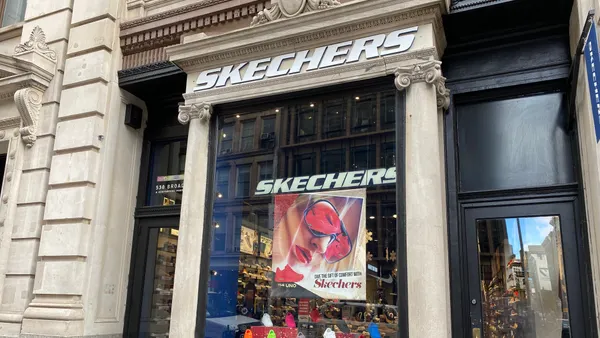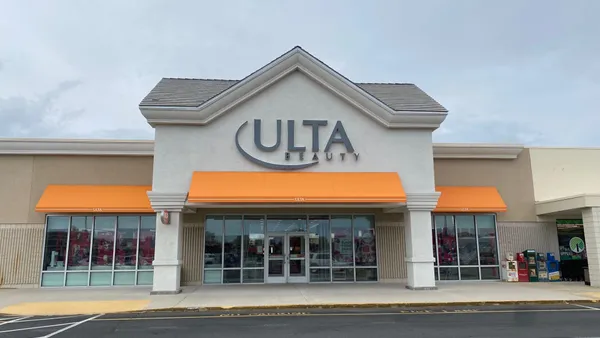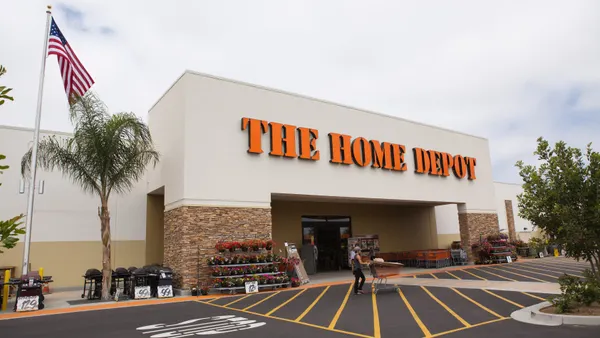Dive Brief:
- GameStop's net sales fell nearly 26% year over year to $1.4 billion in the third quarter, a fall-off the gaming retailer attributed mainly to a 23.2% decline in comparable sales. Net loss for the period was $83.4 million.
- Most of GameStop's business performed poorly during the quarter, with hardware sales down 45.8%, new game software sales down 32.6%, and accessories and pre-owned games both down more than 13%, according to a press release. The one area of growth was collectibles, which grew 4.3% and represented more than 11% of GameStop's sales during the quarter.
- Q3 was bad enough that management cut its guidance for the full fiscal year, slashing more than a dollar from their earnings-per-share estimates and now expecting comps to decline in the high teens (worse than the low-teens decline previously predicted). Profit and sales both fell short of FactSet consensus estimates, sending shares down more than 20% after the Q3 report, according to MarketWatch.
Dive Insight:
GameStop had expected a tough quarter and year, but executives apparently did not set their expectations low enough. In a statement, GameStop CEO George Sherman attributed the company's performance to the state of the gaming industry, noting "the unprecedented decline in new hardware sales seen across the market as the current generation of gaming consoles reach the end of their lifecycle and consumers delay their spending in anticipation of new hardware releases."
In a conference call with analysts, Sherman cited NPD Group figures showing "historically low sales" in gaming merchandise, according to a Seeking Alpha transcript. "It's important to keep in mind that this is not uniquely a GameStop issue," he said. "This is a console issue and consoles are the trigger point for our industry."
GameStop has been aware of the console transition for some time now but was still caught flat-footed by how bad it was. That 46% decline in hardware sales at the retailer in Q3 was "well below our expectations" Sherman said, but noted it was still in line with the industry overall.
And that is GameStop's grand, even existential challenge, as a category specialist in an evolving space. Its fate is hitched entirely to gaming. The console turnover may represent a temporary downcycle for the industry, but at the same time GameStop faces a rapid shift in how gamers access games. GameStop hopes to adjust by forging new exclusive partnerships with brands, re-imagining its stores as hubs for gamers and shifting its merchandise mix, such as in collectibles and higher-margin products like accessories.
Sherman doesn't think that Q3 is reflective of GameStop's long-term prospects. He highlighted a 30% decrease in ending inventories compared to the prior year, which he said helped generate cash flow despite sales declines. The company has also taken $30 million in costs from its corporate overhead, about halfway toward a larger cost-cutting effort. CFO Jim Bell said the retailer was on track to close as many as 250 stores globally this year.
Jeffries analysts led by Stephanie Wissink said they were encouraged by cost cuts and expect GameStop's revenue to rebound in late 2020 as new hardware launches kick off. The analysts acknowledged GameStop's "roadmap for improvement" — i..e, its turnaround plan — but also said the company needs a "sense of urgency."
"We think the team is taking the right steps, [especially] in terms of cost recalibration, but would like to see more aggressiveness in forward loading the actions," the analysts said.














